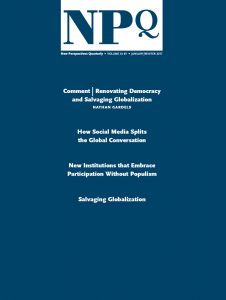The Rise of Police Body Cameras
Police departments across the country are rapidly increasing their technological capacity to become a more efficient and effective force. These technologies vary from new weapons, wide-area surveillance, facial recognition software, closed caption television cameras, and crime mapping software. Each of these technologies is oriented towards identifying offenders and preventing or intervening in crime incidents. The technology has become a multi-billion dollar industry with vendors regularly contacting departments attempting to sell them the next great technology. One technology becoming increasingly popular...



1728-4457/asset/PopulationCouncilLogo.jpg?v=1&s=03074651676b98d6b9d0ef1234bd48fe7ff937c3)